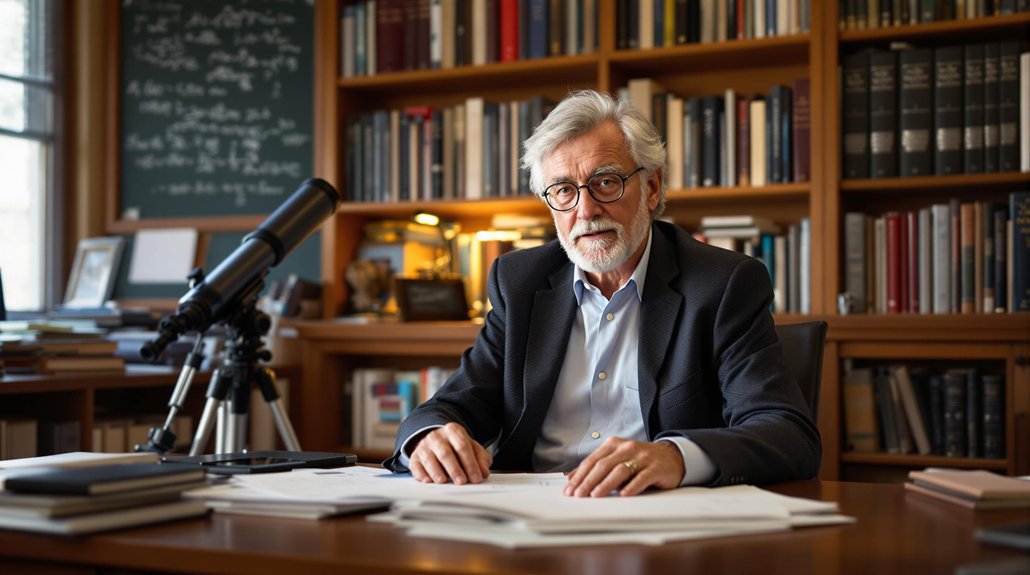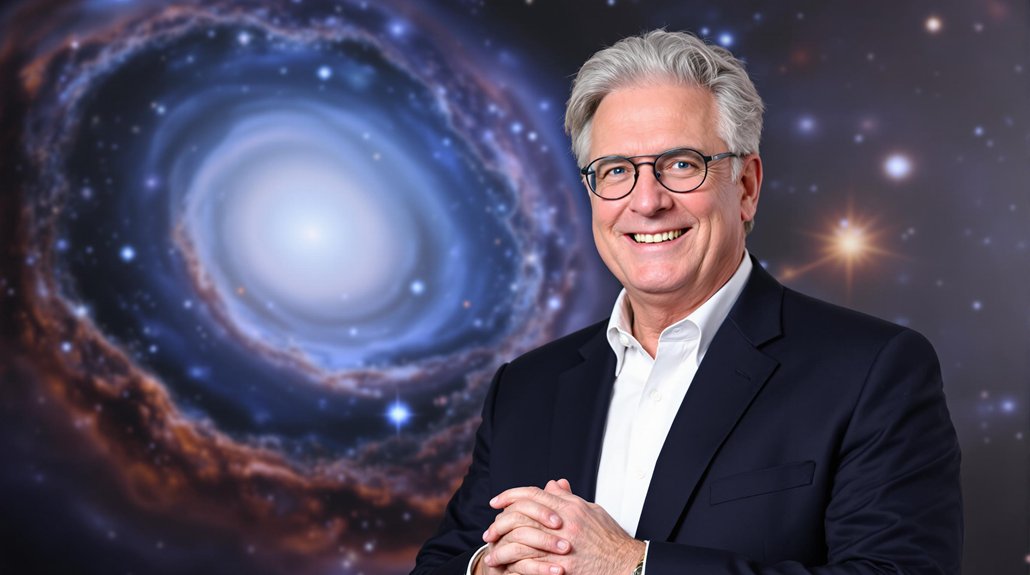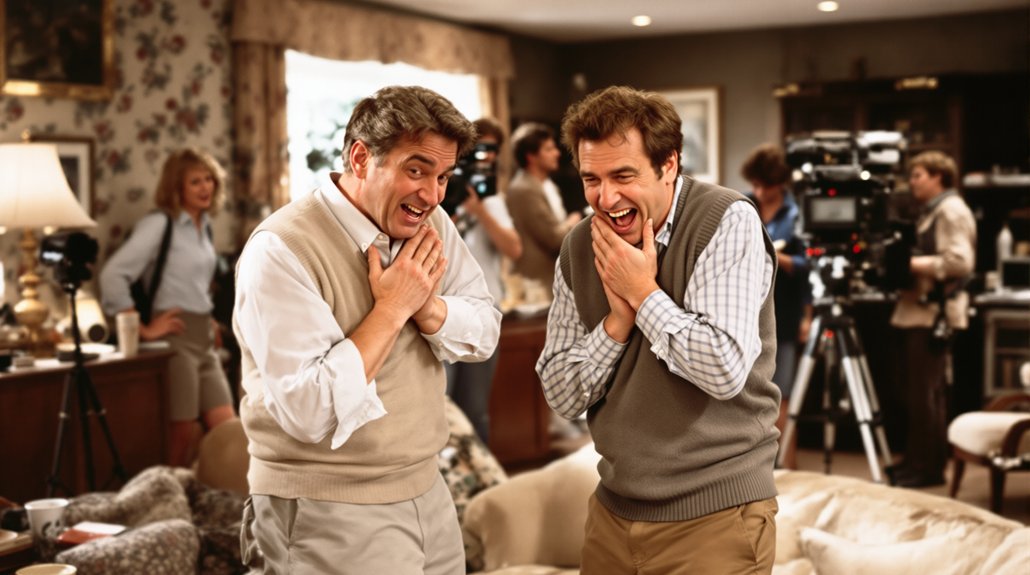Brian Cox is a British physicist and professor at the University of Manchester who earned his PhD in High Energy Particle Physics in 1998 and later became renowned for his exceptional science communication abilities. Born in 1968 in Oldham, Lancashire, Cox uniquely combines particle physics research, including work on the ATLAS experiment at CERN, with a successful career as a BBC television presenter and former keyboardist for the band D:Ream, making complex scientific concepts accessible through various media platforms that reveal fascinating insights about our universe.

A physicist turned television personality, Brian Cox has emerged as one of Britain’s most recognizable scientific figures, seamlessly bridging the gap between complex academic research and public understanding of the universe. Born in 1968 in Oldham, Lancashire, Cox demonstrated an unusual combination of scientific aptitude and musical talent that would define his unconventional career trajectory.
Cox pursued his scientific education at the University of Manchester, where he completed his Bachelor of Science degree in physics with first-class honours in 1991. He continued his academic journey at the same institution, earning his PhD in High Energy Particle Physics in 1998, with his doctoral thesis titled “Double Diffraction Dissociation at Large Momentum Transfer” conducted at the DESY laboratory in Hamburg.
Remarkably, Cox’s early academic years coincided with a successful music career as keyboardist for the rock band Dare, and later with D:Ream, which achieved significant UK chart success with their hit single “Things Can Only Get Better.” This musical background distinguished him from typical academic physicists and later contributed to his ability to communicate scientific concepts with accessibility and engagement.
Following the disbandment of his musical group, Cox committed himself fully to academia, eventually becoming Professor of Particle Physics at the University of Manchester. His research involvement spans several major international projects, including membership in the ATLAS experiment at CERN’s Large Hadron Collider, participation in the H1 experiment at DESY, the D0 experiment at Fermilab, and the FP420 R&D project at CERN. His scientific focus centers on diffractive scattering and high-energy particle physics.
Cox has garnered widespread recognition for his exceptional science communication abilities through television and radio presentations. He has hosted numerous BBC programmes including “The Universe” (2021), “The Planets” (2018), “Forces of Nature” (2016), and “Human Universe” (2014), while co-hosting BBC Radio 4’s popular “Infinite Monkey Cage” programme. In recognition of his outstanding contributions to science communication, he holds the position of Royal Society Professor for Public Engagement in Science.
His contributions to science and public engagement have earned substantial recognition, including appointment as Officer of the Order of the British Empire (OBE) in 2010, the President’s Medal from the Institute of Physics (2012), and the Royal Society Michael Faraday Prize (2012). He was elected a Fellow of the Royal Society (FRS) in 2016, cementing his status in the scientific community. He maintains fellowships with the Royal Society, Institute of Physics, and Royal Academy of Music.
Cox has co-authored several books with Jeff Forshaw, including “Why Does E=mc²?” and “The Quantum Universe,” making complex physics accessible to general audiences while maintaining his prolific academic publication record in particle physics research.








